
Varanasi: The Spiritual Heart of India
Welcome to Varanasi, one of the oldest living cities in the world, where spirituality and history intertwine in a mesmerizing blend. Nestled along the sacred Ganges River, Varanasi is a city of temples, ghats, and vibrant festivals. It is a place where life and death walk hand in hand, offering a profound experience that touches the soul. Begin your journey at the ghats, the steps leading down to the river, where you can witness the timeless rituals of bathing, prayer, and cremation. The Dashashwamedh Ghat is the most famous, where the evening Ganga Aarti ceremony captivates both locals and visitors with its fervent chants and twinkling lamps. For an even more enchanting experience, take a boat ride at dawn and watch the city awaken in the soft golden light. Varanasi is also home to some of the most important temples in Hinduism. The Kashi Vishwanath Temple, dedicated to Lord Shiva, is a must-visit. Its golden spire and intricate carvings are a testament to the city's rich architectural heritage. Another significant site is the Sankat Mochan Hanuman Temple, where you can feel the divine energy and hear the resonating chants of devotees. Beyond the spiritual allure, Varanasi is a hub of culture and learning. The Banaras Hindu University is one of the largest residential universities in Asia and a center of art, music, and dance. The city's narrow lanes are dotted with shops selling silk saris, wooden toys, and delicious street food. Don't miss trying the local delicacies like kachori sabzi and the famous Banarasi paan. Varanasi is a city that stays with you long after you've left. Its soulful atmosphere, rich traditions, and warm hospitality make it a unique and unforgettable destination.
Local tips in Varanasi
- Attend the evening Ganga Aarti at Dashashwamedh Ghat for a captivating spiritual experience.
- Take an early morning boat ride on the Ganges to see the city in its most serene and beautiful light.
- Visit the Kashi Vishwanath Temple, but be prepared for security checks and long queues.
- Explore the narrow lanes for local handicrafts and authentic street food; try the famous Banarasi paan.
- Respect local customs and traditions, especially at the ghats and temples.
- Wear comfortable footwear as you'll be doing a lot of walking on uneven surfaces and steps.
- Carry a reusable water bottle to stay hydrated, especially during the hot summer months.
- Hire a knowledgeable local guide to gain deeper insights into the city's history and culture.
Neighbourhoods in Varanasi
Varanasi: The Spiritual Heart of India
Welcome to Varanasi, one of the oldest living cities in the world, where spirituality and history intertwine in a mesmerizing blend. Nestled along the sacred Ganges River, Varanasi is a city of temples, ghats, and vibrant festivals. It is a place where life and death walk hand in hand, offering a profound experience that touches the soul. Begin your journey at the ghats, the steps leading down to the river, where you can witness the timeless rituals of bathing, prayer, and cremation. The Dashashwamedh Ghat is the most famous, where the evening Ganga Aarti ceremony captivates both locals and visitors with its fervent chants and twinkling lamps. For an even more enchanting experience, take a boat ride at dawn and watch the city awaken in the soft golden light. Varanasi is also home to some of the most important temples in Hinduism. The Kashi Vishwanath Temple, dedicated to Lord Shiva, is a must-visit. Its golden spire and intricate carvings are a testament to the city's rich architectural heritage. Another significant site is the Sankat Mochan Hanuman Temple, where you can feel the divine energy and hear the resonating chants of devotees. Beyond the spiritual allure, Varanasi is a hub of culture and learning. The Banaras Hindu University is one of the largest residential universities in Asia and a center of art, music, and dance. The city's narrow lanes are dotted with shops selling silk saris, wooden toys, and delicious street food. Don't miss trying the local delicacies like kachori sabzi and the famous Banarasi paan. Varanasi is a city that stays with you long after you've left. Its soulful atmosphere, rich traditions, and warm hospitality make it a unique and unforgettable destination.
When is the best time to go to Varanasi?
Iconic landmarks you can’t miss
Shri Kashi Vishwanath Temple
Discover the spiritual heart of Varanasi at Shri Kashi Vishwanath Temple, a magnificent Hindu shrine rich in history and devotion.
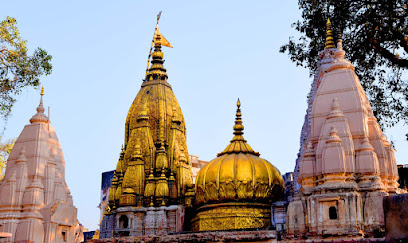
Assi Ghat, Varanasi
Discover the spiritual heart of Varanasi at Assi Ghat, where culture, tradition, and the sacred Ganges come alive.
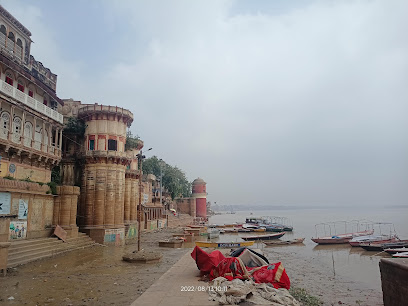
Dashashwamedh Ghat
Explore Dashashwamedh Ghat, a spiritual gem in Varanasi, where devotion meets vibrant culture along the sacred Ganges River.
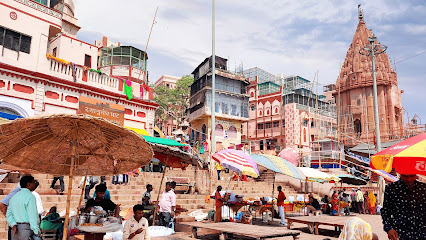
Ramnagar Fort
Discover the majestic Ramnagar Fort, an iconic fortress and museum that reveals the rich history and culture of Uttar Pradesh.
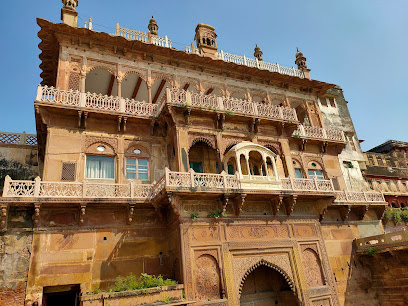
Namo Ghat
Discover the spiritual essence of Varanasi at Namo Ghat, where tradition meets tranquility along the holy banks of the Ganges.
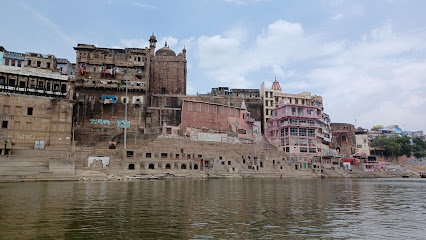
Manikarnika Ghat - Manikarnika Mahashamshan Ghat
Discover the spiritual heart of Varanasi at Manikarnika Ghat, where life, death, and heritage intertwine in a sacred journey.
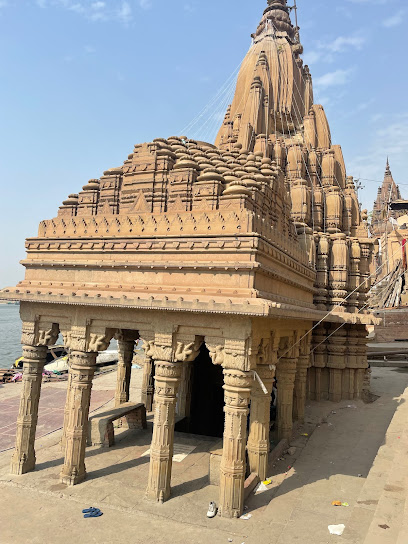
Varanasi Fun City
Experience the thrill of water adventures at Varanasi Fun City, a must-visit water park perfect for families and tourists seeking excitement.
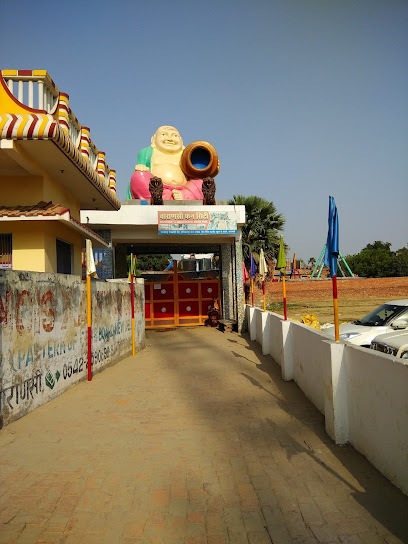
Chaukhandi Stupa
Discover the serene beauty and rich history of Chaukhandi Stupa, a significant Buddhist monument near Sarnath, Varanasi.
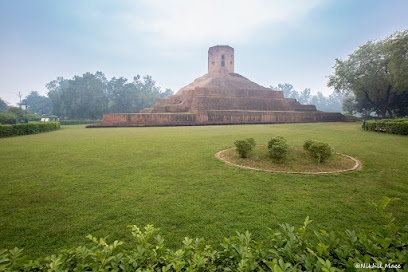
Chet Singh Ghat
Discover the serenity and historical richness of Chet Singh Ghat, a spiritual gem along the banks of the Ganges in Varanasi.
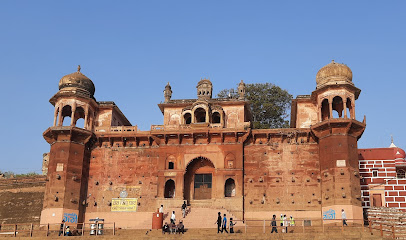
Maharaja Harishchandra Ghat - Burning Ghat
Explore the spiritual depths of Maharaja Harishchandra Ghat in Varanasi, where ancient rituals and profound history converge on the banks of the sacred Ganges.
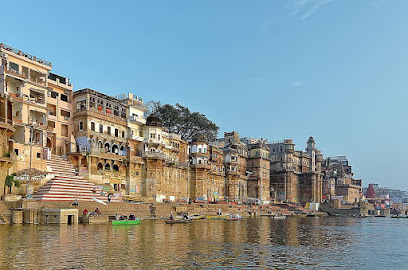
Tulsi Ghat
Explore Tulsi Ghat in Varanasi: A historic religious destination where spirituality and culture meet along the sacred Ganges River.
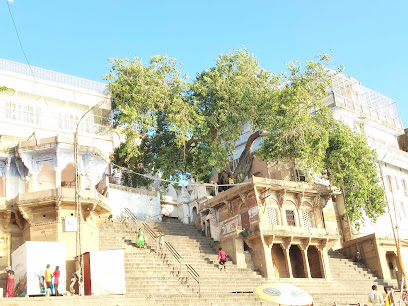
Bharat Kala Bhavan Museum
Discover the artistic treasures of India at Bharat Kala Bhavan Museum within Banaras Hindu University, a cultural gem in Varanasi.
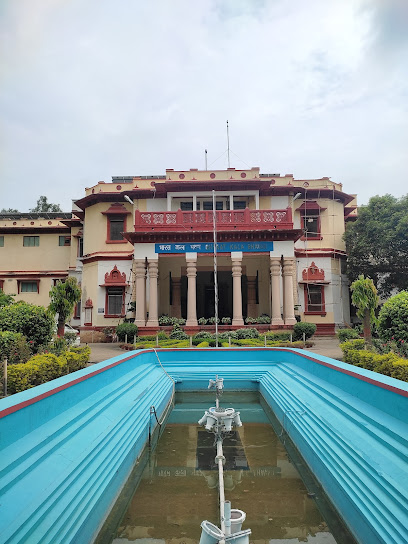
Dr. Rajendra Prasad Ghat
Discover the spiritual essence of Varanasi at Dr. Rajendra Prasad Ghat, a historical landmark where tradition and tranquility meet along the sacred Ganges.
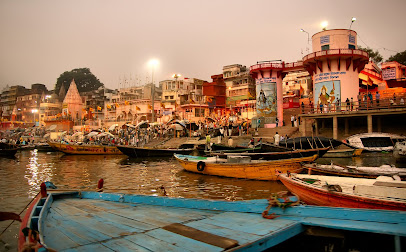
Manikarnika ghat
Experience the profound spirituality and ancient traditions at Manikarnika Ghat, a sacred site in Varanasi where life and death converge.
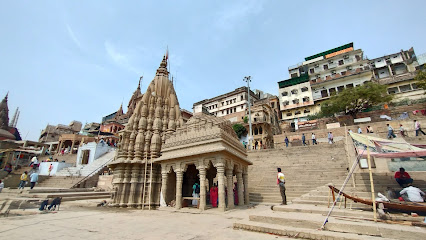
Panchganga Ghat
Discover the spiritual heart of Varanasi at Panchganga Ghat, where five rivers meet and ancient rituals come to life.
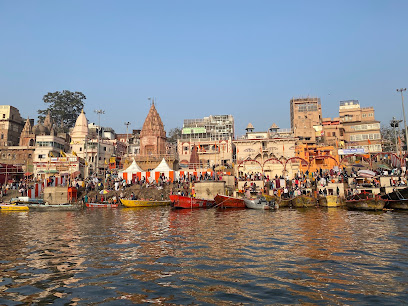
Unmissable attractions to see
Shri Kashi Vishwanath Temple
Experience the divine essence of Shri Kashi Vishwanath Temple in Varanasi, a stunning Hindu sanctuary steeped in rich history and cultural significance.
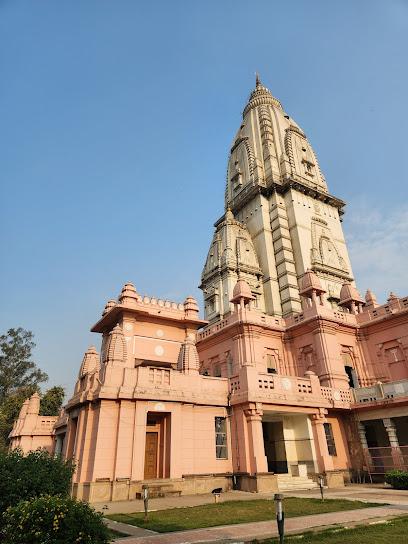
Ramnagar Fort Varanasi
Explore the majestic Ramnagar Fort, a historical gem in Varanasi showcasing royal heritage and breathtaking views of the Ganges.
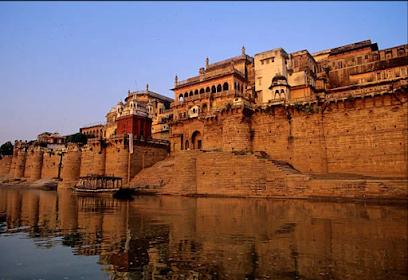
Banaras Hindu University
Discover the rich history and vibrant culture of Banaras Hindu University in Varanasi, where education and heritage blend seamlessly.
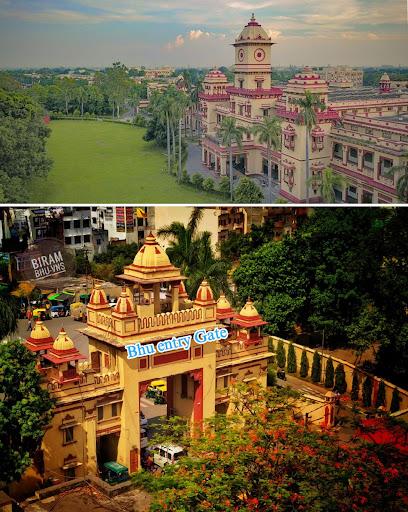
Archaeological Buddhist Remains of Sarnath
Discover the spiritual heart of Buddhism at Sarnath, where history and tranquility converge in sacred ruins and museums.
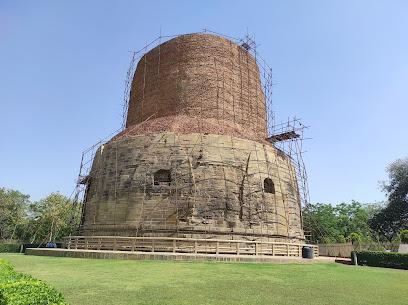
Beniya Park
Experience the tranquility and cultural richness of Beniya Park, a lush oasis in Varanasi perfect for relaxation and exploration.
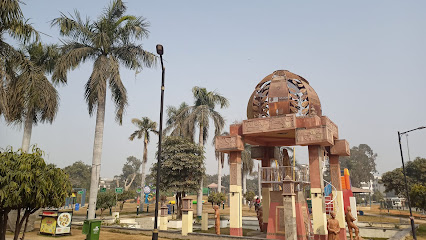
Shri Satyanarayan Tulsi Manas Mandir Varanasi
Experience tranquility and spiritual enrichment at Shri Satyanarayan Tulsi Manas Mandir, a stunning Hindu temple in Varanasi.
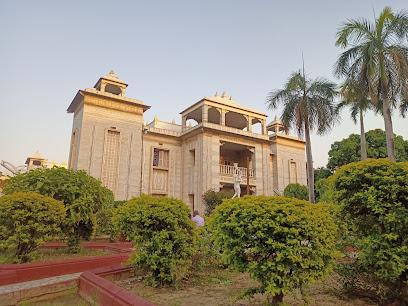
Chunar Fort
Explore the historic Chunar Fort, a stunning blend of architecture and breathtaking views in Uttar Pradesh, India.
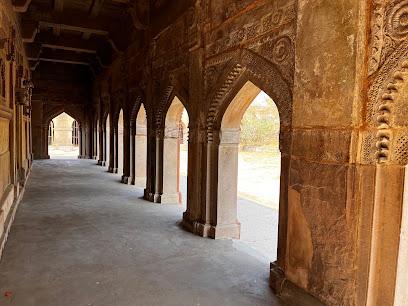
Dhamekh Stupa, Sarnath
Explore the Dhamekh Stupa in Sarnath, a UNESCO World Heritage Site where Buddha shared his first teachings, surrounded by serene landscapes.
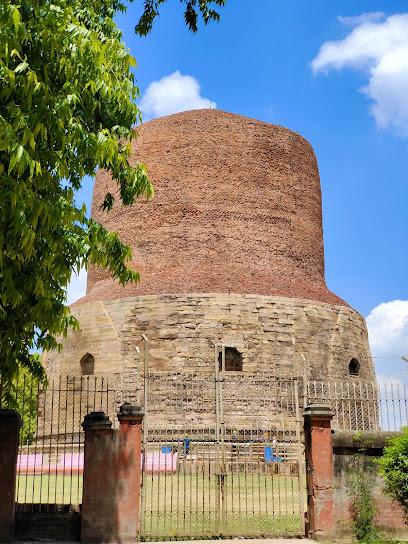
Sankat Mochan Hanuman Temple, Varanasi
Discover the spiritual essence of Varanasi at the Sankat Mochan Hanuman Temple, where devotion and tradition converge in a serene setting.
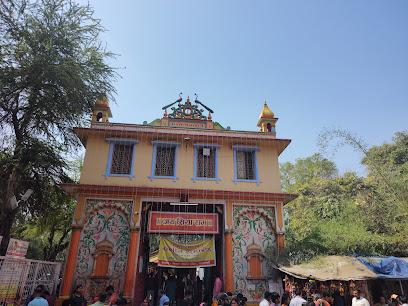
Shaheed Udyan Nagar Nigam
Experience the tranquility of Shaheed Udyan Nagar Nigam, Varanasi's lush park offering relaxation, family fun, and natural beauty.
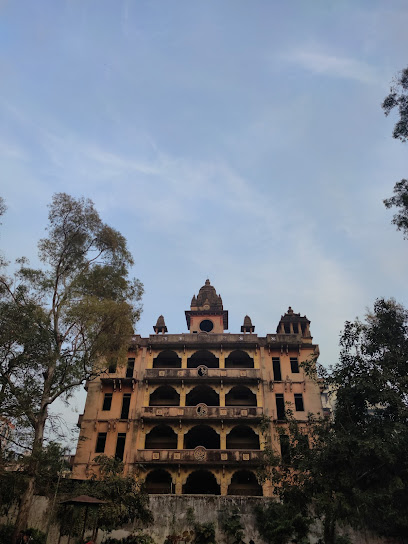
Anand Park
Discover tranquillity at Anand Park, a beautiful green space in Varanasi perfect for relaxation, picnics, and cultural exploration.
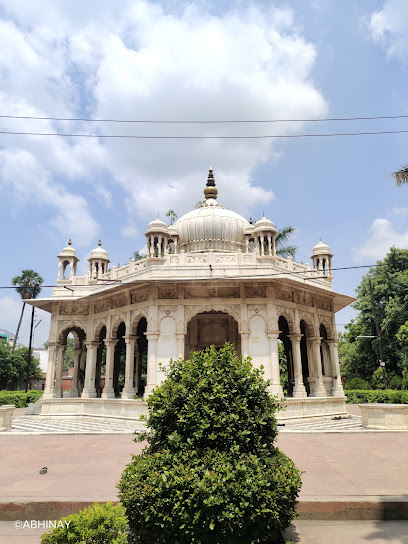
Man Singh Observatory
Discover the celestial beauty and historical significance of Man Singh Observatory in Varanasi, a must-see destination for every traveler.
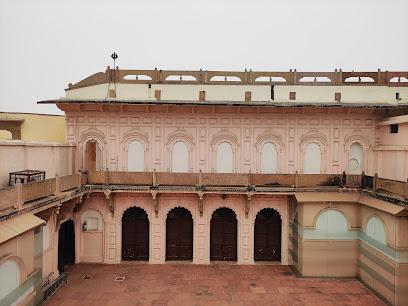
Chet Singh Ghat
Discover the sacred beauty and rich history of Chet Singh Ghat in Varanasi, a spiritual landmark on the banks of the Ganges River.
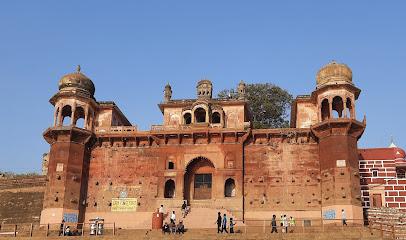
Tulsi Ghat
Discover Tulsi Ghat in Varanasi, a serene Hindu temple and historical site, where spirituality and beauty converge along the sacred Ganges River.
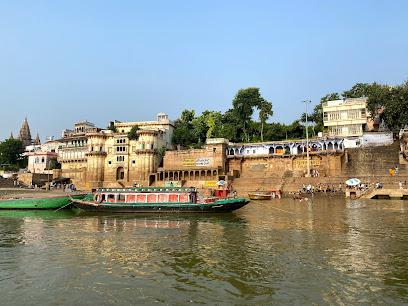
Shivala Ghat
Discover the spiritual heart of Varanasi at Shivala Ghat, where ancient traditions meet the flowing Ganges River in a mesmerizing cultural experience.
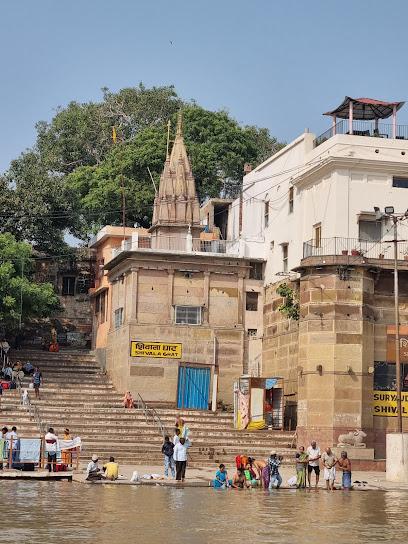
Essential places to dine
Kashi Chat Bhandar
Experience the authentic taste of Indian street food at Kashi Chat Bhandar in Varanasi—where every bite tells a story.
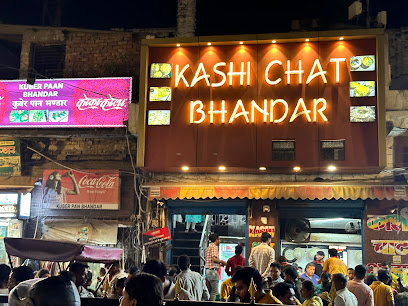
Kerala Cafe
Experience authentic South Indian cuisine at Kerala Cafe in Varanasi - where flavor meets tradition in every bite.
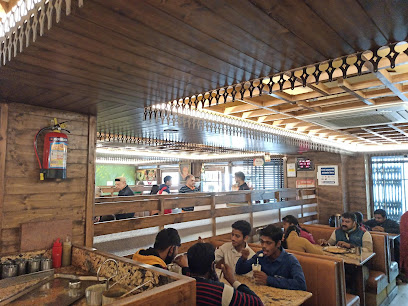
Baati Chokha Restaurant
Discover authentic vegetarian Indian cuisine at Baati Chokha Restaurant in Varanasi - where tradition meets flavor.
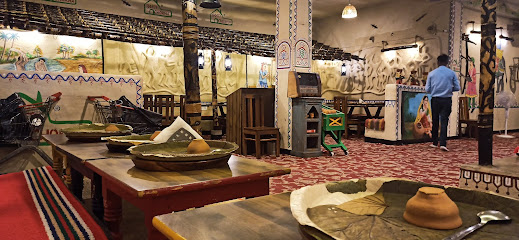
Roma's Cafe Diner
Experience culinary diversity at Roma's Cafe Diner in Varanasi - where Asian meets European flavors in a vibrant setting.
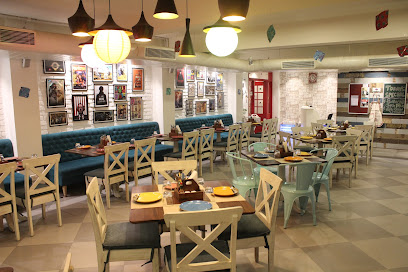
Barbeque Nation - Varanasi
Experience the best of Indian barbecue at Barbeque Nation in Varanasi - where every meal is a celebration of flavors.
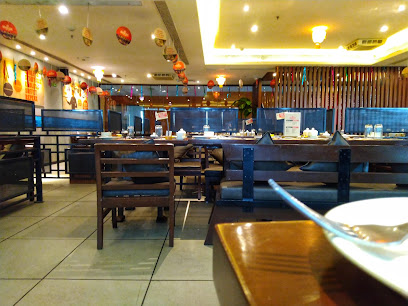
Ming Garden-Restaurant
Savor authentic Chinese cuisine at Ming Garden-Restaurant in Varanasi - A delightful fusion of flavors awaits you.
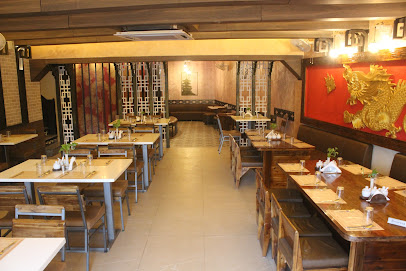
Aman-E-Khaas
Discover the rich flavors of Mughlai cuisine at Aman-E-Khaas in Varanasi - a delightful family-friendly dining experience awaits!
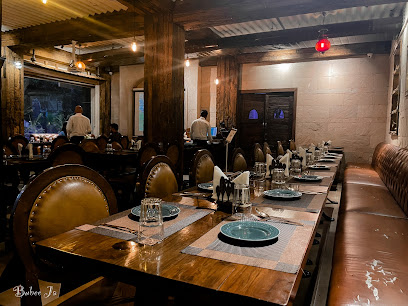
Shree Shivay Thali Dining Varanasi
Discover authentic North Indian cuisine at Shree Shivay Thali Dining in Varanasi - a must-visit for every food lover!
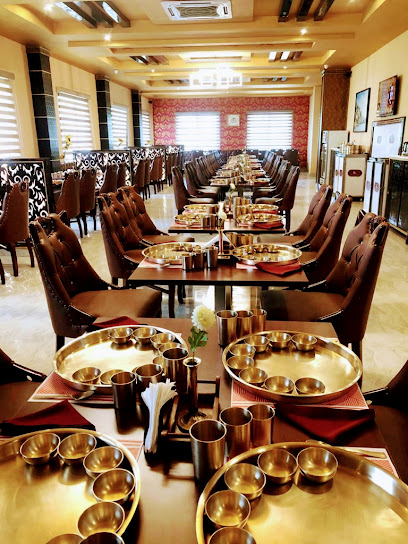
Tandoor Villa
Experience the rich flavors of India at Tandoor Villa - where every dish tells a story of tradition and taste.
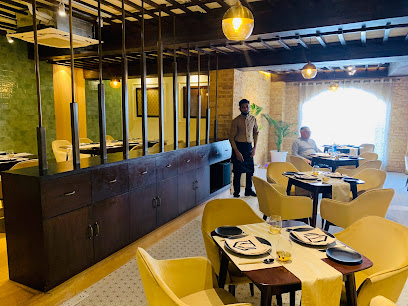
Chrystal Bowl
Experience the vibrant flavors of India and beyond at Chrystal Bowl - where culinary diversity meets warm hospitality.
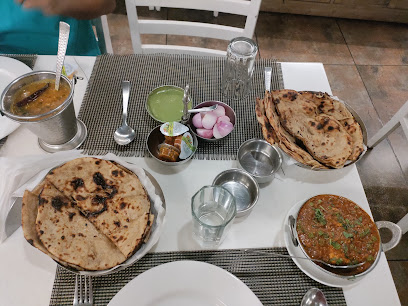
Sri Annapurna Restaurant | Family & Fine - Dine Restaurant in Varanasi | Pure Veg Restaurant in Varanasi
Discover the vibrant flavors of South Indian vegetarian cuisine at Sri Annapurna Restaurant in Varanasi - a perfect family dining destination.
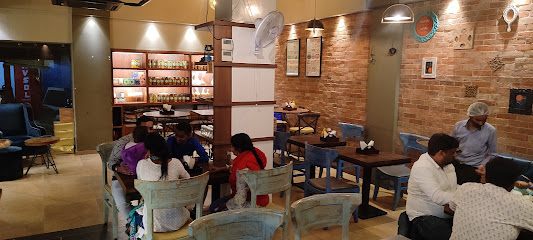
Wife On Leave -Best Veg and Non Veg Family Restaurant in Varanasi
Experience the best of Indian and Chinese cuisine at Wife On Leave – Varanasi's favorite family restaurant!
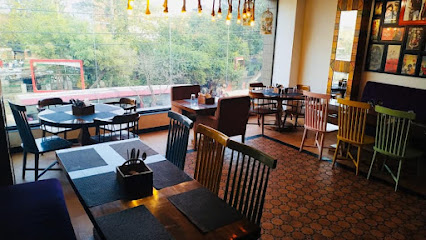
The Taste Factory
Experience the best of modern Indian and Chinese cuisine at The Taste Factory in Varanasi – perfect for family dining.
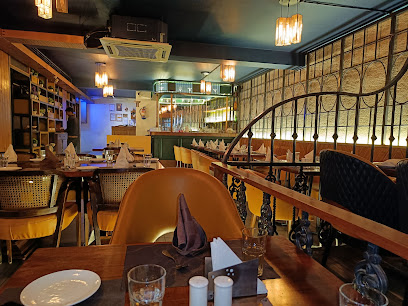
Behind Yellow Doors Diner
Discover authentic Indian flavors at Behind Yellow Doors Diner in Varanasi - where every meal is a celebration of taste.
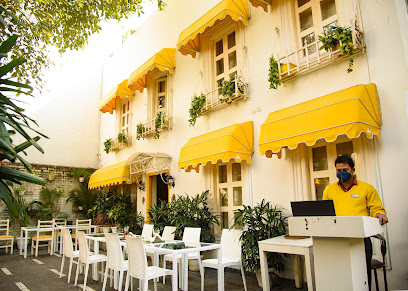
Ambrosia Restaurant
Experience family-friendly dining at Ambrosia Restaurant in Varanasi, featuring exquisite Chinese cuisine in a warm and welcoming atmosphere.
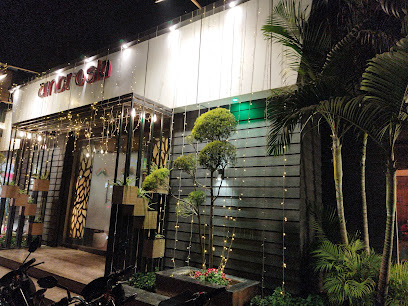
Markets, malls and hidden boutiques
Firstcry.com Store Varanasi Gulabbagh
Experience the ultimate shopping destination for babies and parents at Firstcry.com Store in Varanasi, where quality meets variety.

Kambal Ghar - Maldahiya Varanasi
Discover Kambal Ghar in Varanasi for a captivating blend of traditional and contemporary fashion that reflects India's rich textile heritage.

Kashi Homes Gift & Decor | Best Gift Shop in Varanasi | Best Home Decor & Event Decorator in Varanasi
Explore Kashi Homes Gift & Decor for unique gifts and exquisite home decor that embody the rich culture of Varanasi.
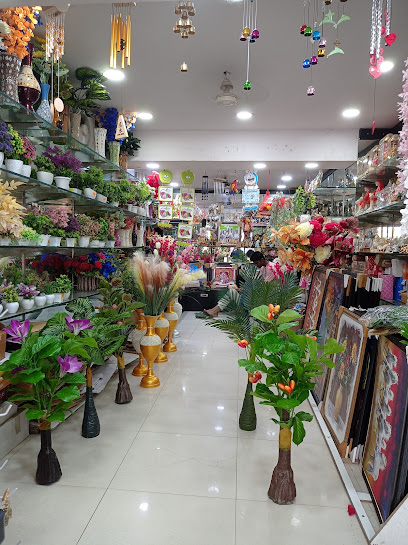
BIG SHOP
Explore BIG SHOP in Varanasi for unique clothing and accessories that blend tradition with modern fashion styles.
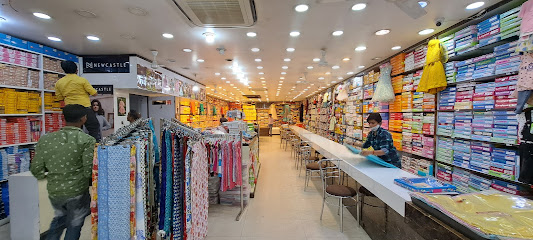
Shoppers Stop
Explore Shoppers Stop in Varanasi for a diverse selection of fashion, accessories, and lifestyle products in a vibrant shopping environment.

Milan Gift & Fashion Collection
Explore Milan Gift & Fashion Collection in Varanasi for unique gifts, clothing accessories, and delightful souvenirs showcasing local craftsmanship.
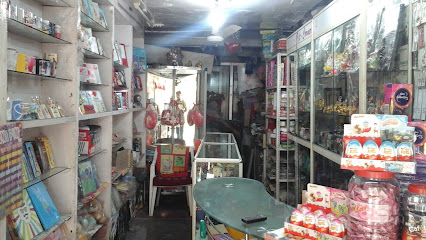
Pitara
Discover unique gifts and toys at Pitara, Varanasi's premier destination for memorable souvenirs and local craftsmanship.
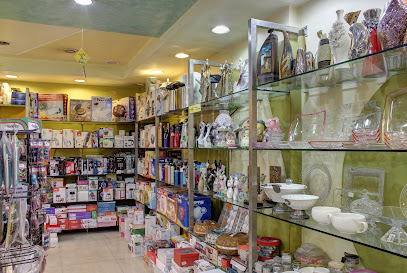
Ankur Enterprises
Explore Ankur Enterprises in Varanasi for a unique blend of lingerie, women's clothing, and exquisite accessories in an elegant shopping atmosphere.
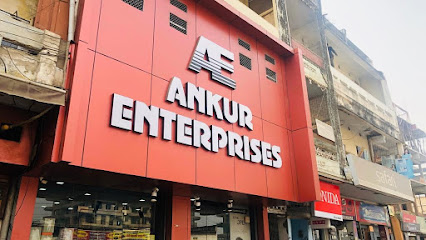
KASHI HOMES GIFT & DECOR
Discover Kashi Homes Gift & Decor: A unique gift shop in Varanasi offering handcrafted treasures and local artistry.
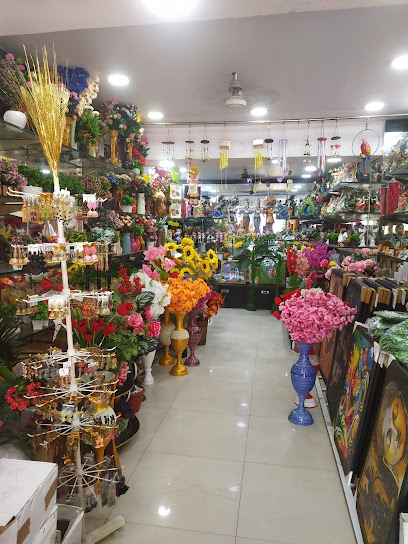
Baba Black Sheep [ Official ] - The Cashmere Studio
Discover the artistry of Indian textiles at Baba Black Sheep in Varanasi, where exquisite cashmere and silk await your exploration.
![Baba Black Sheep [ Official ] - The Cashmere Studio](https://evendo-location-media.s3.amazonaws.com/ShoppingImages/77373546-8f3c-4c15-8795-098a20af7739)
Mohanlal Kishanchand, MK | Banarasi Saree shop | Printed saree & suit | Famous Saree Shop near Vishwanath Temple
Explore the elegance of Banarasi sarees at Mohanlal Kishanchand, a premier saree shop in Varanasi near the Vishwanath Temple.
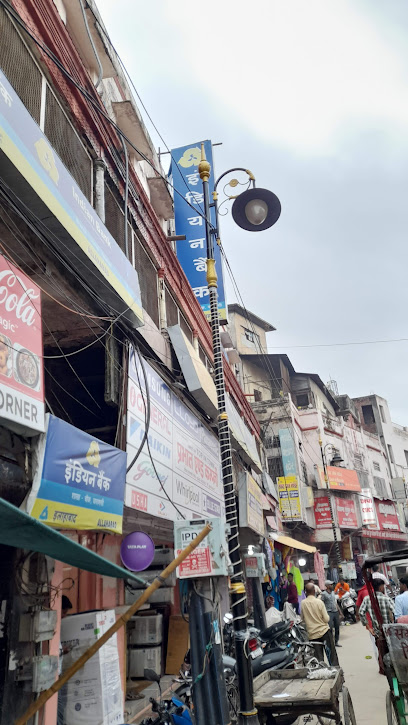
Archies Love World
Explore the exquisite collection of gifts, toys, and stationery at Archies Love World, the heart of Varanasi's creative shopping scene.

Toys world | Best Toy shop in Varanasi | Best Gift Shop in Varanasi
Explore Toys World in Varanasi for a magical selection of toys and gifts that will delight visitors of all ages in a colorful and vibrant shopping experience.
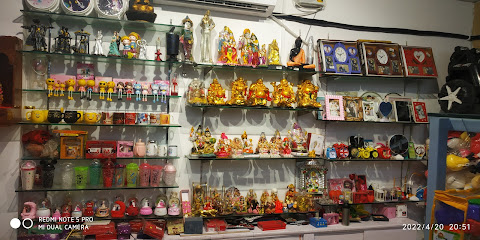
Tussar - The Multi Designer Store
Discover the elegance of designer fashion at Tussar, the premier destination for women's clothing and unique accessories in Varanasi.

ARMONIA | Best Gift Shop In Varanasi | Best Showpiece Shop in Varanasi | Best Home Decor Shop in Varanasi
Discover unique gifts and exquisite home decor at Armonia, Varanasi’s finest gift shop, showcasing the rich artistry of India.
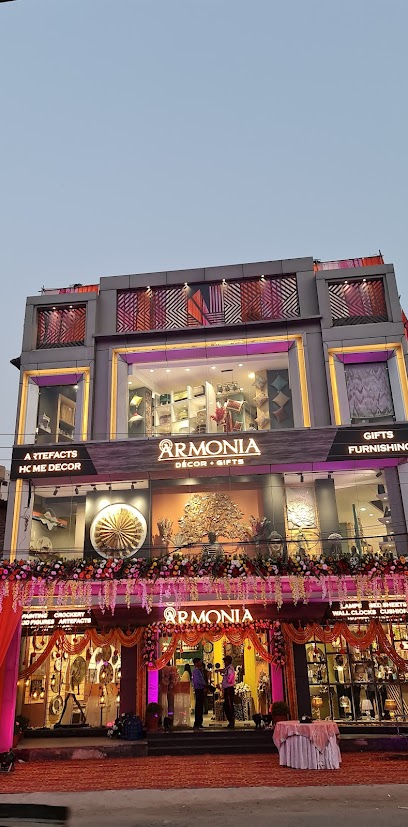
Essential bars & hidden hideouts
VNS LIVE STUDIO
Experience the vibrant flavors and lively ambiance at VNS LIVE STUDIO in Varanasi, where culinary delights meet cultural encounters.

THE 3RD FLOOR BAR STOCK EXCHANGE
Experience vibrant nightlife and exquisite dining at The 3rd Floor Bar Stock Exchange in Varanasi, where drinks are a dynamic delight.
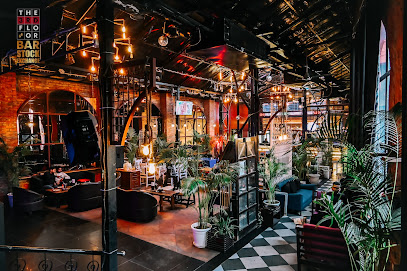
My Table
Discover My Table in Varanasi - a rooftop bar offering stunning views, delicious drinks, and a vibrant atmosphere for an unforgettable experience.
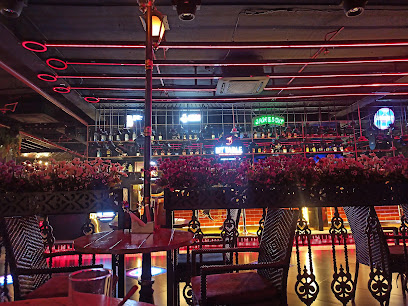
Captain Nova - Bar & Lounge
Experience the vibrant nightlife of Varanasi at Captain Nova, where delicious cuisine, signature cocktails, and live entertainment come together.
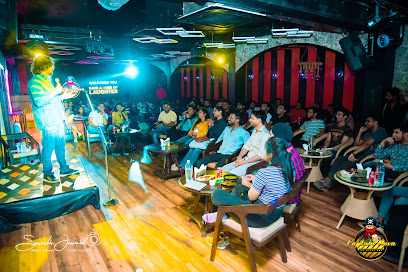
Drinks On Board | Pub Bar Nightclub
Discover the lively nightlife of Varanasi at Drinks On Board, where great drinks meet unforgettable experiences.
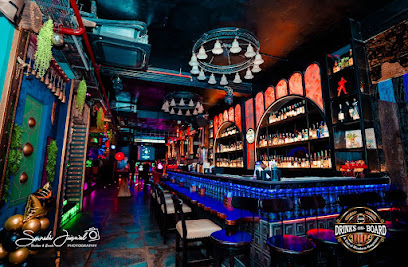
The Vibe
Experience the vibrant atmosphere and diverse menu at The Vibe, a premier bar and restaurant in Varanasi, perfect for food lovers and night owls.
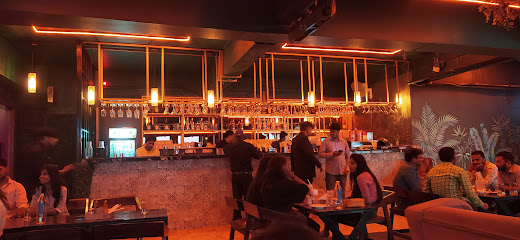
BAR BAR BANARAS
Experience the vibrant nightlife of Varanasi at Bar Bar Banaras, where local flavors meet a lively atmosphere for an unforgettable evening.

Winfa Bar Restaurant
Savor the rich flavors of India at Winfa Bar Restaurant, where traditional grilling meets vibrant dining in the heart of Varanasi.
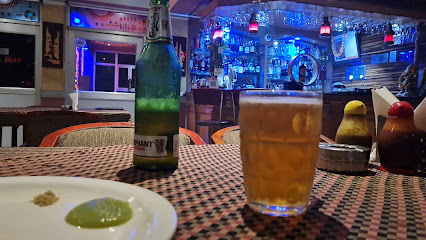
Mark's Man Bar and Restaurant
Discover a delightful blend of local flavors and vibrant nightlife at Mark's Man Bar and Restaurant in Varanasi, perfect for unwinding after a day of exploration.
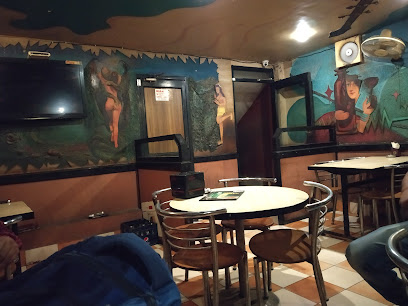
Kritika Restaurant And Bar
Experience the vibrant flavors of Varanasi at Kritika Restaurant and Bar, where delicious cuisine meets a lively atmosphere.
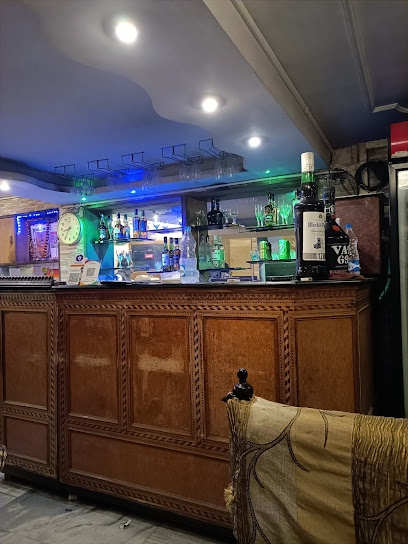
Club 65 The Restro & Bar
Discover the vibrant nightlife at Club 65, Varanasi's premier lounge and bar, perfect for relaxation and socializing.
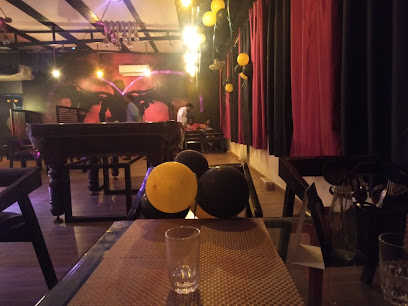
Sol Haveli Bar
Discover vibrant nights at Sol Haveli Bar, a perfect blend of cocktails, music, and dance in the heart of Varanasi.
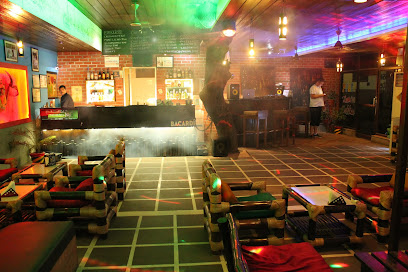
Mangi Ferra Cafe
Experience the vibrant flavors of Mangi Ferra Cafe in Varanasi, blending American cuisine with local charm for an unforgettable dining experience.
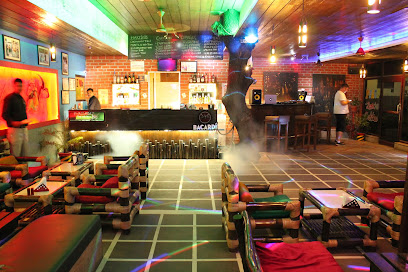
Chahat Beer Bar And Restaurant
Discover the vibrant flavors of Varanasi at Chahat Beer Bar And Restaurant, a lively destination for food and drinks in the heart of the city.

Local Phrases
-
- Helloनमस्ते
[namaste] - Goodbyeअलविदा
[alvida] - Yesहाँ
[haan] - Noनहीं
[nahin] - Please/You're welcomeकृपया
[krupaya] - Thank youधन्यवाद
[dhanyavad] - Excuse me/Sorryक्षमा कीजिए
[kshama keejiye] - How are you?आप कैसे हैं?
[aap kaise hain?] - Fine. And you?ठीक हूँ। और आप?
[thik hoon. aur aap?] - Do you speak English?क्या आप अंग्रेज़ी बोलते हैं?
[kya aap angrezi bolte hain?] - I don't understandमुझे समझ नहीं आया
[mujhe samajh nahi aaya]
- Helloनमस्ते
-
- I'd like to see the menu, pleaseकृपया मेन्यू दिखाएं
[krupaya menu dikhaye] - I don't eat meatमैं मांस नहीं खाता/खाती
[main maans nahi khaata/khaati] - Cheers!चियर्स!
[cheers!] - I would like to pay, pleaseकृपया मुझे भुगतान करने दे
[krupaya mujhe bhugtan karne de]
- I'd like to see the menu, pleaseकृपया मेन्यू दिखाएं
-
- Help!बचाओ!
[bachao!] - Go away!चले जाओ!
[chale jao!] - Call the Police!पुलिस को बुलाओ!
[police ko bulaao!] - Call a doctor!डॉक्टर को बुलाओ!
[doctor ko bulaao!] - I'm lostमैं खो गया/गई हूँ
[main kho gaya/gayi hoon] - I'm illमुझे बीमारी है
[mujhe bimari hai]
- Help!बचाओ!
-
- I'd like to buy...मैं... खरीदना चाहूँ
[main... khareedna chahta/chahti hoon] - I'm just lookingमैं सिर्फ देख रहा/रही हूँ
[main sirf dekh raha/rahi hoon] - How much is it?यह कितने का है?
[yah kitne ka hai?] - That's too expensiveयह बहुत महंगा है
[yah bahut mahnga hai] - Can you lower the price?क्या आप कीमत कम कर सकते हैं?
[kya aap keemat kam kar sakte hain?]
- I'd like to buy...मैं... खरीदना चाहूँ
-
- What time is it?अब कितने बजे हैं?
[ab kitne baje hain?] - It's one o'clockएक बजे हैं
[ek baje hain] - Half past (10)दस बजे तक
[das baje tak] - Morningसुबह
[subah] - Afternoonदोपहर
[dopahar] - Eveningशाम
[shaam] - Yesterdayकल
[kal] - Todayआज
[aaj] - Tomorrowकल
[kal] - 1एक
[ek] - 2दो
[do] - 3तीन
[teen] - 4चार
[chaar] - 5पांच
[paanch] - 6छह
[chhe] - 7सात
[saat] - 8आठ
[aath] - 9नौ
[nau] - 10दस
[das]
- What time is it?अब कितने बजे हैं?
-
- Where's a/the...?... कहाँ है?
[... kahan hai?] - What's the address?पता क्या है?
[pata kya hai?] - Can you show me (on the map)?क्या आप मुझे दिखा सकते हैं (नक्शे पर)?
[kya aap mujhe dikha sakte hain (naksha par)?] - When's the next (bus)?अगली (बस) कब है?
[agli (bas) kab hai?] - A ticket (to ....)एक टिकट (किसके लिए...)
[ek ticket (kiske liye...)]
- Where's a/the...?... कहाँ है?
History of Varanasi
-
Varanasi, also known as Kashi or Benares, is one of the oldest continuously inhabited cities in the world. Its origins date back to around 2000 BCE. It is believed that the city was founded by the Hindu deity Lord Shiva, making it a pivotal site for Hinduism.
-
Varanasi is renowned for its numerous temples. The Kashi Vishwanath Temple, dedicated to Lord Shiva, is one of the most famous and sacred temples in the city. Originally constructed in 1780 by Ahilya Bai Holkar, the temple has been a spiritual center for millions of Hindu devotees.
-
The Ganges River, or Ganga, is considered sacred in Hinduism. Varanasi's ghats, or riverfront steps, are a focal point for pilgrims who come to bathe in the river's holy waters. Dasaswamedh Ghat, one of the most prominent ghats, is believed to be the site where Lord Brahma performed a ten-horse sacrifice.
-
Varanasi is also significant in Buddhism. Sarnath, located just 10 kilometers from Varanasi, is where Buddha delivered his first sermon after attaining enlightenment. The Dhamek Stupa, constructed in 500 CE, marks the spot of this historic event.
-
During the medieval period, Varanasi was a thriving center of learning and culture, attracting scholars, philosophers, and artists. The city was an important trade hub, connecting North India with regions such as Bengal and Central Asia.
-
In the 16th century, Varanasi came under Mughal rule. Emperor Akbar was known to have visited the city and patronized its cultural institutions. The Mughal influence is evident in some of the city's architecture, including the Gyanvapi Mosque, built by Aurangzeb in the 17th century.
-
Varanasi became part of the British Raj in the 18th century. The British influence brought modern education and infrastructure to the city, including the establishment of Banaras Hindu University in 1916 by Pandit Madan Mohan Malaviya, which remains one of the largest residential universities in Asia.
-
After India's independence in 1947, Varanasi underwent significant changes. The city has continued to be a hub of cultural, spiritual, and academic activities. Modernization efforts have aimed to preserve its historical heritage while accommodating contemporary needs.
-
Varanasi is famous for its vibrant festivals. Dev Deepawali, celebrated fifteen days after Diwali, sees the ghats illuminated with millions of diyas (oil lamps). The Ganga Mahotsav, a cultural festival, showcases the city's rich traditions, music, and dance.
Varanasi Essentials
-
Varanasi, also known as Kashi, is well-connected by air, rail, and road. The nearest airport is Lal Bahadur Shastri International Airport, located about 26 kilometers from the city center. It offers flights to major Indian cities and some international destinations. Varanasi Junction (BSB) is the main railway station, serving as a hub for trains coming from all parts of India. For road travelers, Varanasi is connected via National Highways 2, 7, and 29. Buses, taxis, and private cars are available for road travel.
-
In Varanasi, auto-rickshaws, cycle-rickshaws, and taxis are the most common modes of local transport. For short distances, cycle-rickshaws are a convenient and eco-friendly option. Auto-rickshaws and taxis can be hired for longer distances or for a full day of sightseeing. Public buses are available but might not be very comfortable for tourists. For a unique experience, don't miss a boat ride on the Ganges River, especially during sunrise or sunset.
-
The official currency in India is the Indian Rupee (INR). Credit and debit cards are widely accepted in hotels, restaurants, and larger shops in Varanasi. However, it is advisable to carry some cash for small purchases, street food, and in areas where card payments are not accepted. ATMs are widely available throughout the city.
-
Varanasi is generally safe for tourists, but standard precautions should be taken. Avoid walking alone late at night in poorly lit areas. Be cautious of your belongings in crowded places, such as markets and during festivals. Areas like the old city near the ghats can be particularly crowded and chaotic; stay vigilant. Scams targeting tourists, such as overpriced boat rides or guided tours, are not uncommon. Always negotiate prices beforehand.
-
In case of emergency, dial 112 for immediate assistance. Varanasi has several hospitals and clinics for medical emergencies. It is advisable to have travel insurance that covers medical emergencies. For minor health issues, you can find pharmacies throughout the city. The local police station can assist with any security concerns.
-
Fashion: Do dress modestly, especially when visiting religious sites. Avoid revealing clothing. Religion: Do show respect to local customs and traditions. Remove your shoes before entering temples and cover your head if required. Public Transport: Do be respectful and give up your seat to elderly passengers. Don’t eat or drink on public transport. Greetings: Do greet people with a 'Namaste,' with hands folded in a prayer position. Eating & Drinking: Do try local delicacies and accept food offerings graciously. Don’t refuse hospitality, as it is considered impolite.
-
To experience Varanasi like a local, take a morning boat ride on the Ganges River to witness the daily rituals. Visit the local markets, such as the Vishwanath Gali, to buy traditional Banarasi silk sarees and handicrafts. Engage with locals to learn about the city's history and culture. Don’t miss the evening Ganga Aarti at Dashashwamedh Ghat, a mesmerizing spiritual experience.
Trending Landmark in Varanasi
-
Shri Kashi Vishwanath Temple
-
Assi Ghat, Varanasi
-
Dashashwamedh Ghat
-
Ramnagar Fort
-
Namo Ghat
-
Manikarnika Ghat - Manikarnika Mahashamshan Ghat
-
Varanasi Fun City
-
Chaukhandi Stupa
-
Chet Singh Ghat
-
Maharaja Harishchandra Ghat - Burning Ghat
-
Tulsi Ghat
-
Bharat Kala Bhavan Museum
-
Dr. Rajendra Prasad Ghat
-
Manikarnika ghat
-
Panchganga Ghat
Nearby Cities to Varanasi
-
Things To Do in Patna
-
Things To Do in Lucknow
-
Things To Do in Chitwan
-
Things To Do in Lumbini
-
Things To Do in Kanpur
-
Things To Do in Bandipur
-
Things To Do in Ranchi
-
Things To Do in Pokhara
-
Things To Do in Gorkha
-
Things To Do in Patan
-
Things To Do in Kathmandu
-
Things To Do in Bhaktapur
-
Things To Do in Nagarkot
-
Things To Do in Jabalpur
-
Things To Do in Namche Bazaar

















